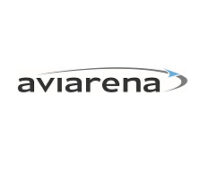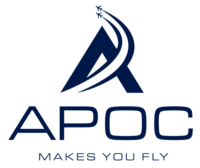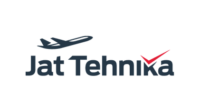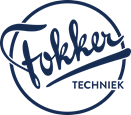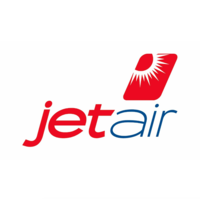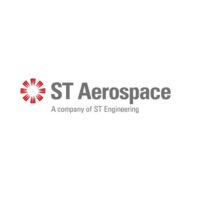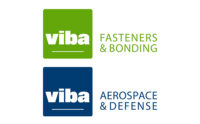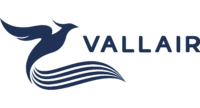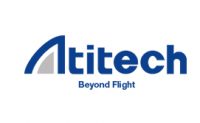Fuel Tank Safety Level 1&2
The course is intended for personnel required to plan, perform, supervise, inspect and certify the maintenance of large aircraft (as defined in Decision 2003/11/RM) in a Part-145 approved maintenance organisation and personnel involved in the management and review of the continuing airworthiness of large aircraft (as defined in Decision 2003/11/RM) in a M.A. Subpart G organisation (CAMO).
Course information
Course Description:
The theory training is delivered by experienced subject matter experts in a classroom environment in English using modern delivery techniques. During this training, there is an option to visit an B737-500 aircraft. This Fuel Tank Safety course is developed to satisfy the requirements of EASA ED 2009/007/A and FAA AC 120-97A of March 2009.
Course Objectives:
The course is intended for personnel required to plan, perform, supervise, inspect and certify the maintenance of large aircraft (as defined in Decision 2003/11/RM) in a Part-145 approved maintenance organisation and personnel involved in the management and review of the continuing airworthiness of large aircraft (as defined in Decision 2003/11/RM) in a M.A. Subpart G organisation (CAMO).
Learning objectives:
The course will provide students with an overview of fuel system safety considerations. Including: Historical incidents, ignition prevention, theoretical background and practical considerations.
Regulatory requirement compliance:
This training course meets the EASA part 145.A.30(e), part M.A.706(f) Personnel
Requirements and EASA part 145.B.10 (3) and part M.B.102(c) Competent Authority – Qualificationand training requirements.
Prerequisites:
A list of all course prerequisites with a statement of why the prerequisites are deemed necessary.
Course Topics
This course has been divided in 5 major parts, all covering different content.
Part 1: History and Concept of Fuel Tank safety
- Development of aircraft fuel tank systems
- Major aircraft accidents that contributed to the improvement of Fuel Tank Safety
- Causes of Trans World Airlines Flight 800 explosion in mid-air
- Ignition characteristics of aircraft fuel
- Characteristics of Jet A/A-1 fuel
- Influences of various factors on fuel flammability
- Ignition sources that can result in ignition of fuel vapours in aircraft fuel tanks
- Aircraft design modification concepts that increase Fuel Tank Safety
Part 2: Regulatory Directives for Ignition Prevention
- Responses of the aviation agencies and authorities to the serious accidents like the TWA 800
- Directives issued by aviation agencies and authorities
- Instructions by SFAR 88 to TC and STC holders to perform
- Actions by EASA resulting from the directive issued by JAA
- Corrective actions resulting from safety review
Part 3: Fuel Tank Safety Maintenance and Inspection
- Finding of Fuel Tank Safety related information in maintenance documentation
- Interpretation of information in the instructions for continuing airworthiness
- Fuel Tank Safety tasks
Part 4: Flammability Reduction Systems
- Background of Flammability Reduction Systems
- Operation of Nitrogen Enriched Air Generation Systems
- Maintenance risks and related safety precautions to the system
Part 5: Electronic Wiring Interconnection System (EWIS)
- Background of EWIS
- Common causes of wiring degradation
- Prevention of EWIS degradation
- Coverage of EWIS degradation in maintenance tasks
Course Duration:
1 day (starting at 09:00 and ending at approximately 16:00).
Instructor information
Instructor credentials:
Mr. Danny Goergen has over 10 years of experience in the aviation industry. After several years working as an aircraft mechanic, he graduated as Bachelor in Aviation Engineering and started as a process engineer in an EASA Part 145 approved component repair shop.
Within this organisation he had two EASA Form 4 positions as Technical Manager and Quality Assurance Manager. In this last position he developed himself as an internal trainer, providing training in EASA/FAA/CAAC Part 145 regulations, Human Factors and Company Processes an Procedures.
While working for this organization as a Quality Assurance Manager and qualified Human Factors trainer, he had the ambition to consult, support and provide training not only for his employer, but also to offer these services to other organizations in the aviation industry.
In October 2009, Danny Goergen founded Holland Aviation Consultancy & Engineering (HACE).
Besides providing consultancy and training services to the aviation industry, on behalf of HACE, he also founded an online training platform, that facilitates the several HACE online training courses, such as Human Factors, EWIS target group 1-6 and Fuel Tank Safety Training.
At the moment Mr. Danny Goergen is, on behalf of HACE, contracted in several interim quality management positions. Two of his clients are Part 147 approved Aviation Competence Centre (ACC, AMC66), where he holds the EASA form 4 position of Quality Assurance Manager. Besides managing the Part 147 quality system, he is also responsible for training their staff in EASA Part 66-147 regulations awareness and MTOE procedures.
Contact information:
Mr. Danny Goergen can be contacted via e-mail (danny.goergen@hace.aero)
Materials used
Required Materials:
Easy Access Rules for Acceptable Means of Compliance for Airworthiness of Products, Parts and Appliances (AMC-20) (Amendment 11) (download here)
Supplemental Materials:
Bring along a notebook and pen if you require to make written notes.
Hardware and Software requirements
Hardware requirements:
A reliable computer with internet connection is necessary to complete the online training.
Software requirements:
There is no software deemed necessary for this training.
Browser information:
We recommend that you use Google Chrome during the course and online examination.
Assessment and grading
Testing procedure:
Students will perform an (online) examination with Multiple-choice questions. A laptop or tablet with WiFi internet connection is needed to complete this examination.
Grading procedure:
This examination needs to be passed with a minimum passrate of 75% in order to receive a certificate of course completion.
Assignments and Participation
Assignments and Projects:
You are required to perform all the workshop assignments in order to complete this course.
Class Participation:
Students must communicate with other Students in the chatroom.
Students are expected to communicate with instructor as a learning resource.
Students are actively participating in discussions.
Course ground rules
Participation is required, expected to communicate with other students in team projects, learn how to navigate in the learning environment system, keep abreast of course announcements, use the student e-mail address opposed to a personal e-mail address. Address technical problems immediately and observe course netiquette at all times.


